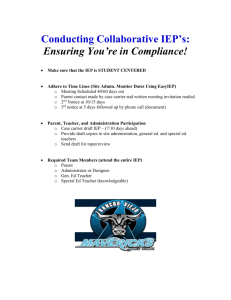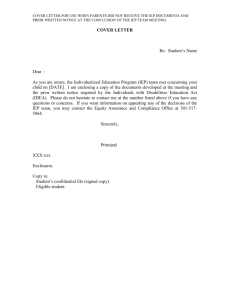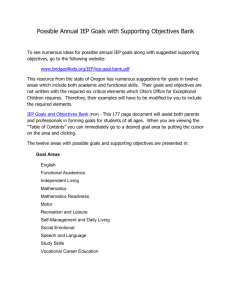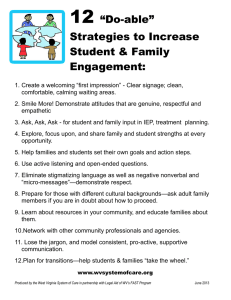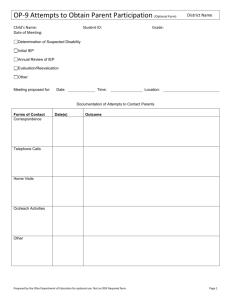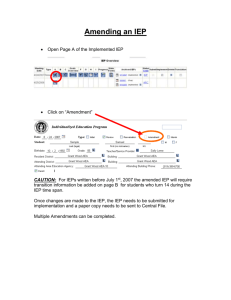Areas for consideration when developing the IEP
advertisement
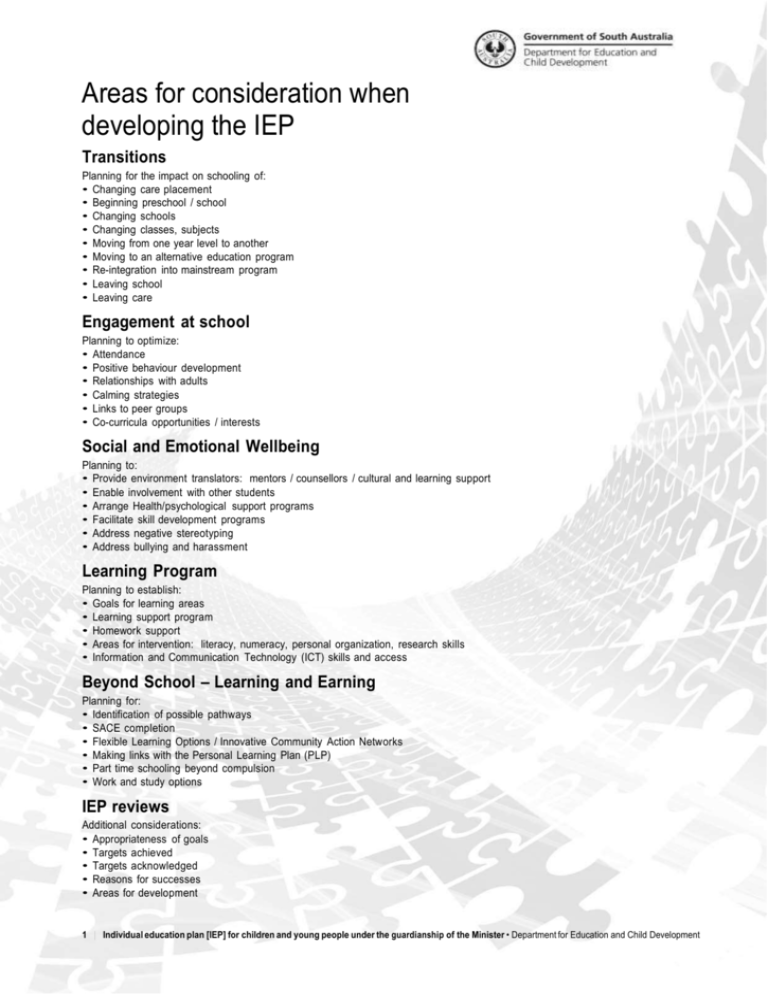
Areas for consideration when developing the IEP Transitions Planning for the impact on schooling of: • Changing care placement • Beginning preschool / school • Changing schools • Changing classes, subjects • Moving from one year level to another • Moving to an alternative education program • Re-integration into mainstream program • Leaving school • Leaving care Engagement at school Planning to optimize: • Attendance • Positive behaviour development • Relationships with adults • Calming strategies • Links to peer groups • Co-curricula opportunities / interests Social and Emotional Wellbeing Planning to: • Provide environment translators: mentors / counsellors / cultural and learning support • Enable involvement with other students • Arrange Health/psychological support programs • Facilitate skill development programs • Address negative stereotyping • Address bullying and harassment Learning Program Planning to establish: • Goals for learning areas • Learning support program • Homework support • Areas for intervention: literacy, numeracy, personal organization, research skills • Information and Communication Technology (ICT) skills and access Beyond School – Learning and Earning Planning for: • Identification of possible pathways • SACE completion • Flexible Learning Options / Innovative Community Action Networks • Making links with the Personal Learning Plan (PLP) • Part time schooling beyond compulsion • Work and study options IEP reviews Additional considerations: • Appropriateness of goals • Targets achieved • Targets acknowledged • Reasons for successes • Areas for development 1 | Individual education plan [IEP] for children and young people under the guardianship of the Minister • Department for Education and Child Development





